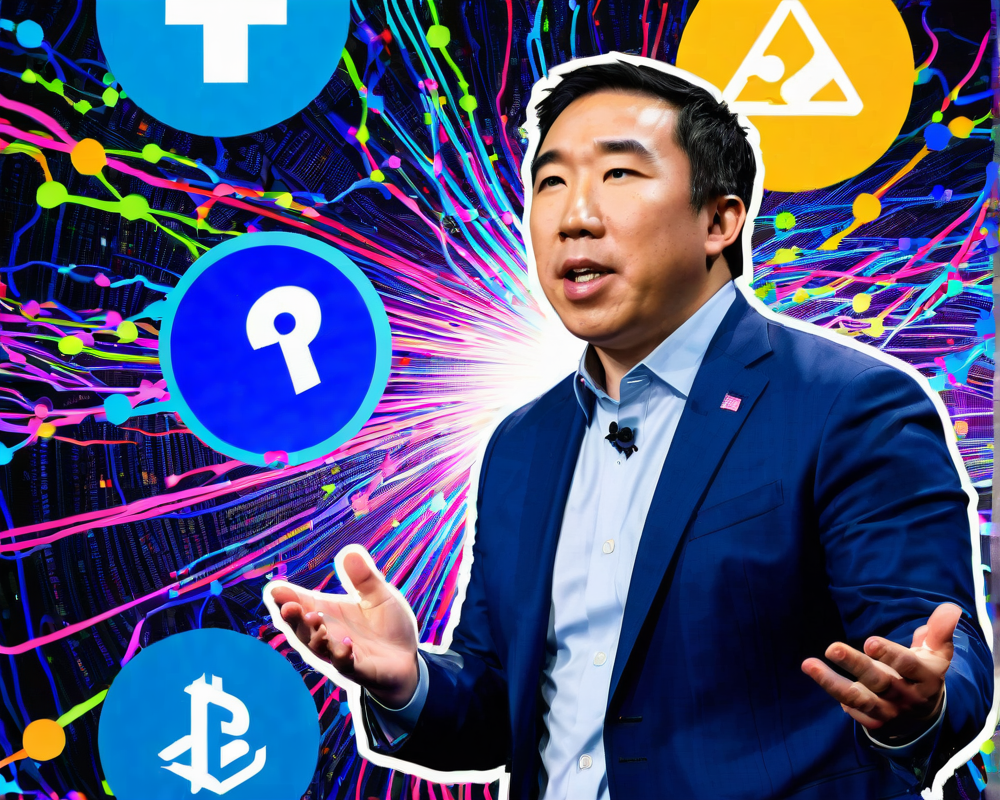Yang’s Blockchain Revelation
Andrew Yang, a name synonymous with forward-thinking tech policies, recently dropped some knowledge bombs at the North American Blockchain Summit. At the event, he passionately expressed his disappointment regarding the current state of blockchain technology and its potential in the U.S. Yang, who branded himself an “enormous believer in smart money, smart currencies,” lamented that the U.S. is lagging behind in harnessing blockchain’s full potential. He warned that without clear and beneficial use cases, companies might soon be skipping town for friendlier regulatory environments. “What they see in the news is just Sam Bankman-Fried and FTX,” he noted, highlighting misguided perceptions of blockchain stemming from high-profile failures.
Unlocking Blockchain’s Potential
Yang advocates for innovative uses of blockchain—seeing it as a tool to alleviate poverty and transform civic engagement. Imagine casting votes through an app! Yang posed this intriguing question, suggesting that if we can securely manage our finances from our phones, why can’t we dabble in democracy as well?
AI: The Double-Edged Sword
But it isn’t just blockchain that Yang is concerned about; AI also has his radar up. He expressed apprehension regarding U.S. AI policies being “fairly limited, maybe even incoherent.” He’s one of many who signed an open letter demanding a pause on advanced AI systems—a voice in the growing cacophony cautioning against unchecked technological advancement. “We may be getting ahead of ourselves with the development of these generative models,” Yang reiterated. It’s a sentiment that seems to resonate across the tech landscape.
The Politics of AI
Yang pointed out that AI isn’t just an abstract concept but a force that could drastically alter the political landscape as well. The potential for AI to manipulate information is concerning, especially when you take into account the chaotic events around deep fakes. As he quipped, “You saw a deep fake of the Pentagon on fire, and the markets moved on that.” This is the kind of ripple effect that can morph the political arena, making careful regulation crucial.
The Regulatory Quagmire
Yang’s scathing critique of U.S. regulatory practices painted a grim picture of a system that waits until disasters occur before reacting. He criticized the current strategy—”Let’s wait until the fiasco happens, and then we’ll have hearings about it afterwards.” He guiltily pointed to Section 230 of the Communications Decency Act as a clear illustration of outdated laws governing innovation. Sure, it’s good to have legislation, but when it’s nearly three decades old—Facebook wasn’t even a glimmer on the horizon in 1996—it’s like using a flip phone for an iPhone launch.
Conclusion
In a world increasingly dominated by rapid technological advancement, voices like Andrew Yang’s are crucial. They remind us not just of the potential rewards but also of the risks involved if we don’t adapt our regulatory frameworks accordingly. The clock is ticking, and one can only hope Congress doesn’t take too long to catch up!




